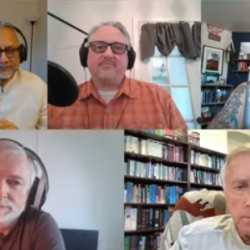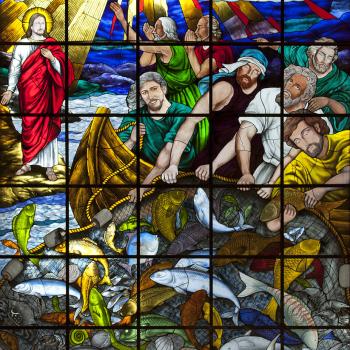What did he do, and how did he do it? The word "evil" was the correct diagnosis, but what was the prescription? In his 1977 dedication of a church in Nowa Huta, Cardinal Wojtyla criticized the Communist Party for attempting to build "a city without God." That was the diagnosis. When he returned to Poland as pope two years later, he proclaimed, "Christ cannot be kept out of the history of man in any part of the globe." The people responded by shouting: "We want God." The prescription for evil was God.
Radek Sikorski, the former deputy foreign minister of a free Poland, wrote in a tribute to John Paul II that, "Before people demand democracy and social rights, they have to gain faith in their own human dignity." That was the prerequisite for liberation: You must know you should be free before you can be free. This is what the pope restored to them. "Be not afraid" were his first words as pope. You need not be afraid because of the truth. Know that truth, and it will set you free.
One needs not only physical courage to be free but, above all, courage of the mind in identifying and speaking the truth. Living in the spirit of the truth is what banishes fear. An example of this was provided by an Iraqi government employee, Haifa, who attended a memorial for the pope at St. Joseph's parish in Baghdad, shortly after the pontiff's death. Despite the threat of violence, she said, "If I die, I will die here in the church with Jesus. When you have a soul of faith, it kills every fear inside your body." It is difficult for people in the West to appreciate how galvanizing the Truth is when it is spoken publicly in a society oppressed by a lie -- an institutionalized lie about man that is enforced by state power.
The pope's "politics" were really quite simple, as they derived from his conviction that God is sovereign and man's human dignity and rights are endowed by Him. Without God, they have no origin. He stressed the irreducible fact that the source of man's dignity is in his Creator. If you lose God, you lose man. As political philosopher Paul Eidelberg once said, "If there is no being superior to man, nothing in theory prevents some men from reducing others to the level of the subhuman."
The political implications of this are clear: If you wish to save man, first restore God to His rightful place. Then, "If you want peace, remember man" -- that is, man made in His image, blessed with reason and free will. Therefore, the political arrangement of man's life should comport with his nature as a free and reasoning creature, ordered to a transcendent good. Within this context, the pope consistently endorsed and enthusiastically promoted democratic, constitutional order and market economics -- and not only for Europeans. Less than a year before his death, he said in a statement read by an aide to interim Iraqi Prime Minister Iyad Allawi: "I wish to encourage efforts made by the Iraqi people to establish democratic institutions which will be truly representative and committed to defending the rights for all." John Paul II's championship of freedom seemed to bear fruit in a reunited Europe, with a free Poland, and the world prospering and at peace. Had not the pope's dream come true?
Then what about the rest? What about John Paul II's excoriating critique of the West after the Cold War, and the puzzlement with which it was greeted? Why did he interrupt our victory celebrations? Those who had reduced the pope's role to the political results of his actions missed, perhaps deliberately, the transcendent moral standards that animated his actions. The same people who failed to grasp the true nature of the Cold War also failed to appreciate the pope's critique of the West. Those who did not understand what was morally wrong with Communist ideology also do not understand what is wrong with us.
While the struggle within the West during the Cold War was over the meaning of Communism, the new struggle is over the meaning of freedom. The Gospel of St. John tells us: "You shall know the truth and the truth shall make you free." After seeing that quote over the doorway to his classroom in Heidelberg, Martin Heidegger told his students: No, no; be free and you shall be true. In other words, it is not putting yourself into relationship with what is that frees you, but making up what you wish. This became the empty credo of modernity.
The same moral relativism that weakened the West during the Cold War remained after the war ended. In fact, it probably grew stronger in the absence of the external threat that had galvanized people in the West to summon enough faith to oppose it. The pope's critique of Communism is important to understand because its principles apply to his critique of the West after the Cold War. It is, in fact, the same critique of modernity, albeit modernity in a different manifestation. Apparently, getting to make up reality for ourselves is not a harmless endeavor. In fact, John Paul II used the same terrible word to describe it: totalitarian.




